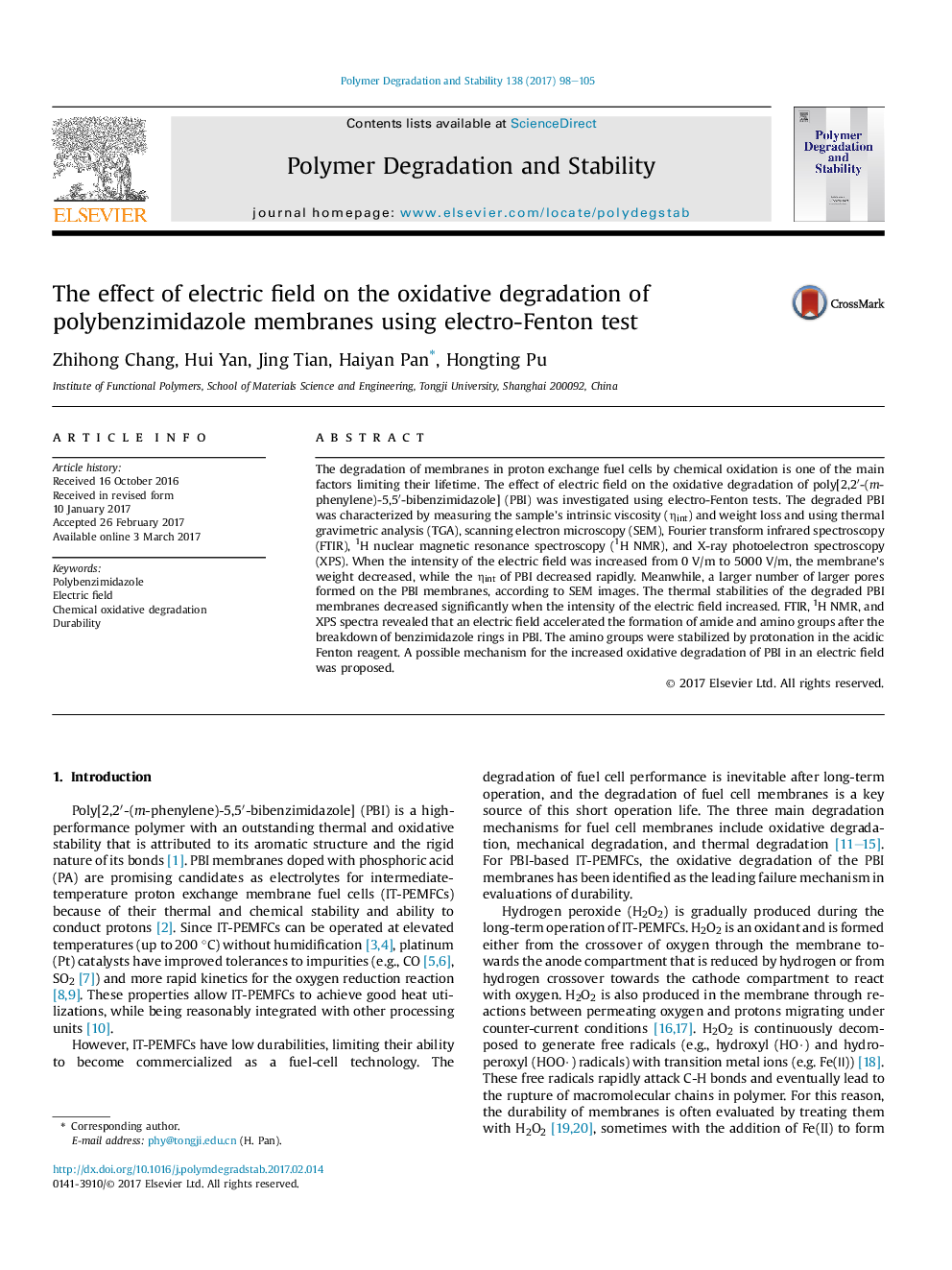| Article ID | Journal | Published Year | Pages | File Type |
|---|---|---|---|---|
| 5200839 | Polymer Degradation and Stability | 2017 | 8 Pages |
Abstract
The degradation of membranes in proton exchange fuel cells by chemical oxidation is one of the main factors limiting their lifetime. The effect of electric field on the oxidative degradation of poly[2,2â²-(m-phenylene)-5,5â²-bibenzimidazole] (PBI) was investigated using electro-Fenton tests. The degraded PBI was characterized by measuring the sample's intrinsic viscosity (ηint) and weight loss and using thermal gravimetric analysis (TGA), scanning electron microscopy (SEM), Fourier transform infrared spectroscopy (FTIR), 1H nuclear magnetic resonance spectroscopy (1H NMR), and X-ray photoelectron spectroscopy (XPS). When the intensity of the electric field was increased from 0 V/m to 5000 V/m, the membrane's weight decreased, while the ηint of PBI decreased rapidly. Meanwhile, a larger number of larger pores formed on the PBI membranes, according to SEM images. The thermal stabilities of the degraded PBI membranes decreased significantly when the intensity of the electric field increased. FTIR, 1H NMR, and XPS spectra revealed that an electric field accelerated the formation of amide and amino groups after the breakdown of benzimidazole rings in PBI. The amino groups were stabilized by protonation in the acidic Fenton reagent. A possible mechanism for the increased oxidative degradation of PBI in an electric field was proposed.
Related Topics
Physical Sciences and Engineering
Chemistry
Organic Chemistry
Authors
Zhihong Chang, Hui Yan, Jing Tian, Haiyan Pan, Hongting Pu,
